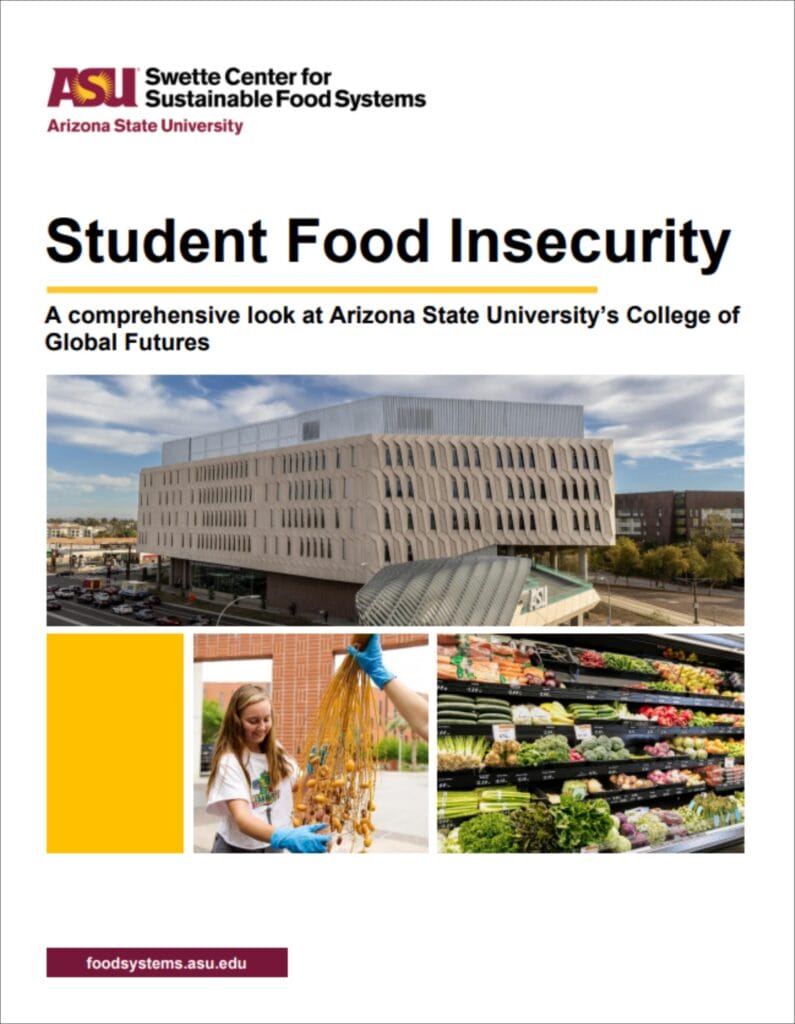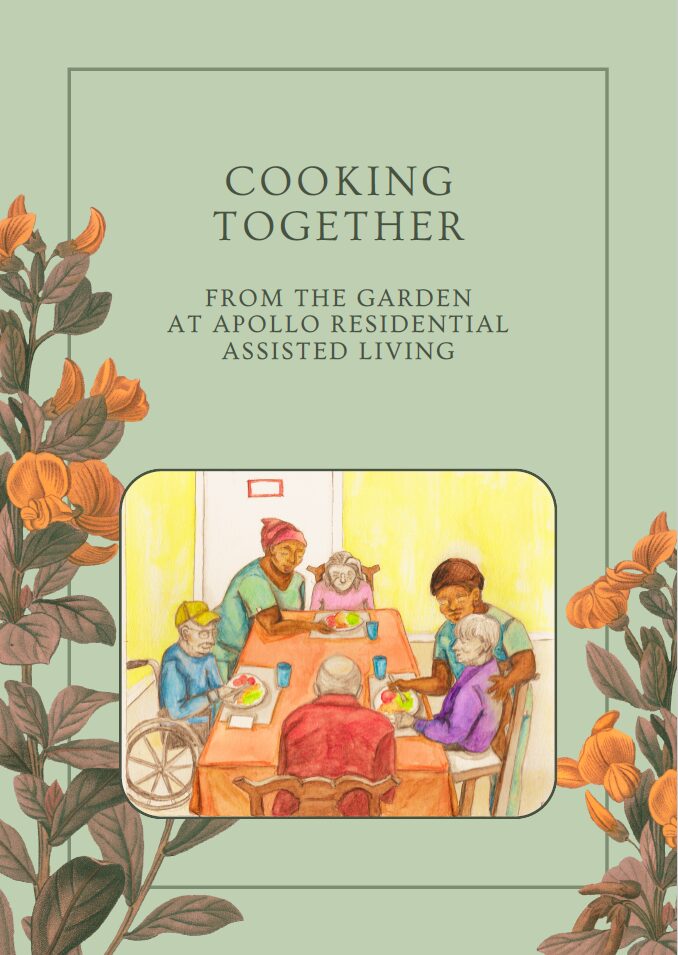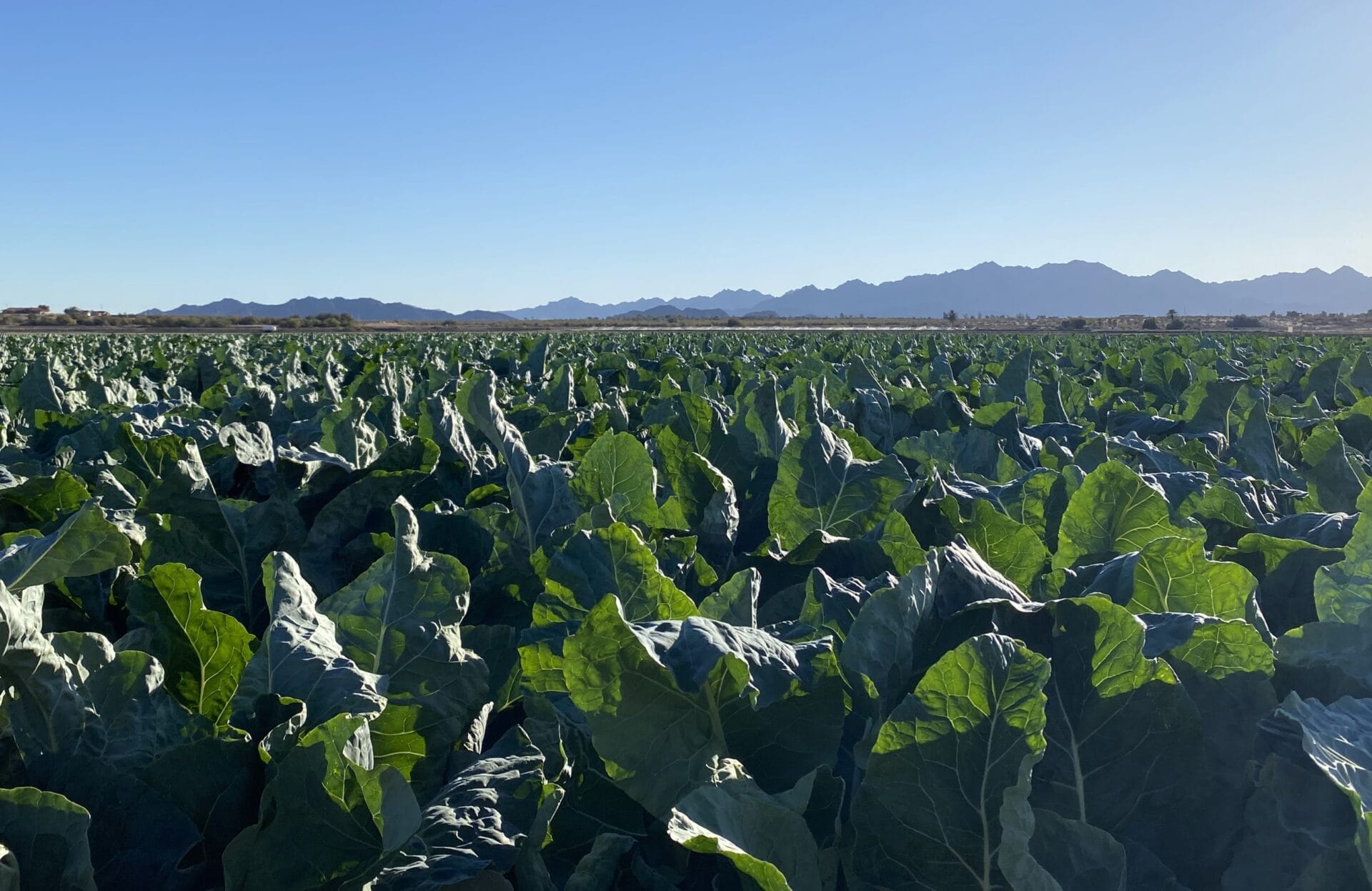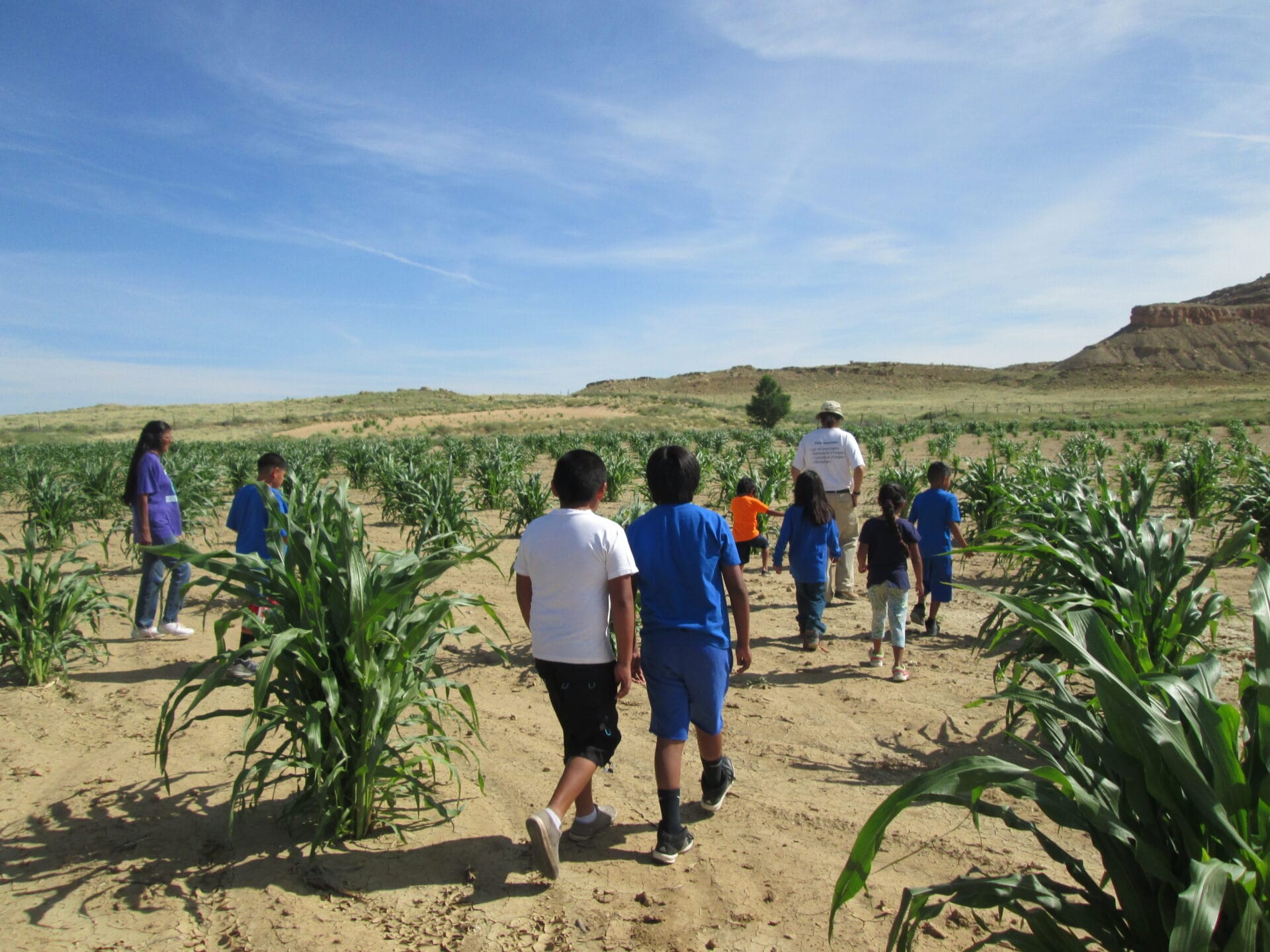
The power of deliciousness
Example hero paragraph text.
To achieve our sustainability goals, we must leverage the power of delicious food and the joy of eating.
We recognize that not everyone will change their diet solely for personal and/or planetary health reasons. Food is deeply rooted in culture, with dishes and culinary traditions shaped by an individual’s unique background and preferences, often evoking strong feelings of satisfaction and nostalgia. That’s why the Swette Center collaborates with chefs and food innovators to promote sustainable consumption in ways that align with deliciousness and rich culinary traditions.
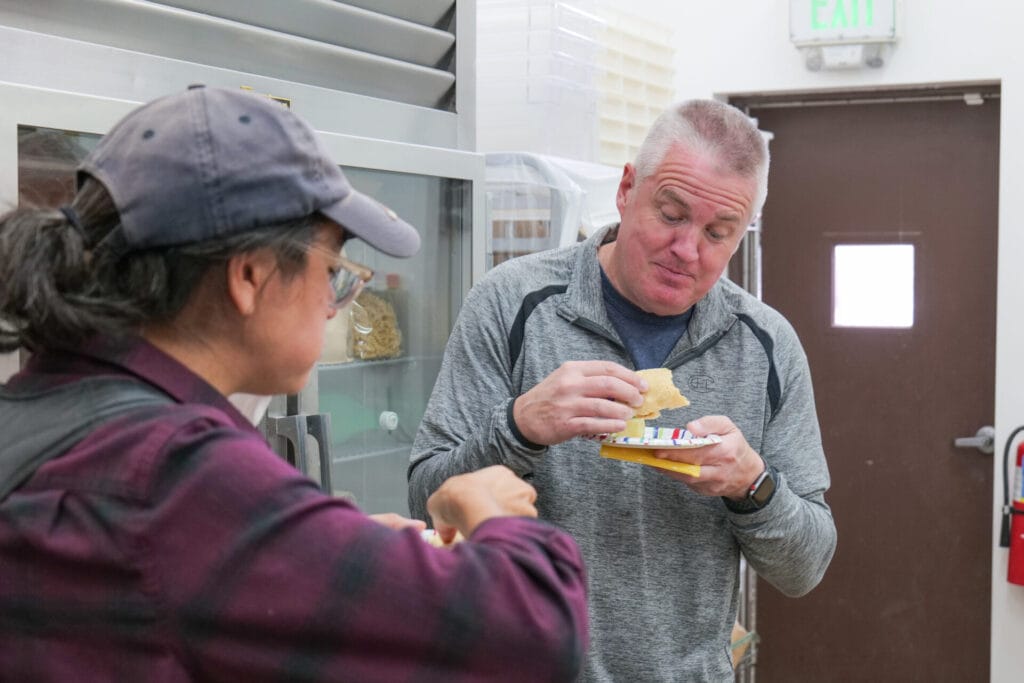
Harnessing deliciousness at the Swette Center
Student Food Insecurity: A comprehensive look at ASU’s College of Global Futures
By harnessing the power of deliciousness, we can make sustainable and nutritious food more appealing, encouraging wider acceptance and improving food security. Furthermore, delicious sustainable foods add variety to diets, making it easier for people to meet their nutritional needs. This diversity is especially crucial in areas with limited food choices, helping to prevent malnutrition and enhance health outcomes.
Inspired by this connection, the Swette Center led a study that surveyed 150+ undergraduate and graduate students at ASU’s College of Global Futures about their experiences with hunger and food insecurity while pursuing their degree. The report contains an in-depth analysis of the data collected, staff and faculty points of view, and our recommendations for institutional support going forward.
Cooking Together: From the Garden at Apollo Residential Assisted Living
Co-authored by Dr. Estève Giraud, Swette Center Director of Research, this research report explores cooking and using the kitchen as a central space for relational dementia care. It is fundamentally cross-disciplinary, bringing together ethics of care research, culinary arts, storytelling, rhetoric, and aging studies to pilot our methodology with the residents and caregivers of a residential assisted living facility in Glendale, AZ. Two goals shaped the research: (1) exploring the benefits of multisensory exploration for dementia patients, and (2) reconnecting food preparation with the landscape’s story by using edible foods from the garden.
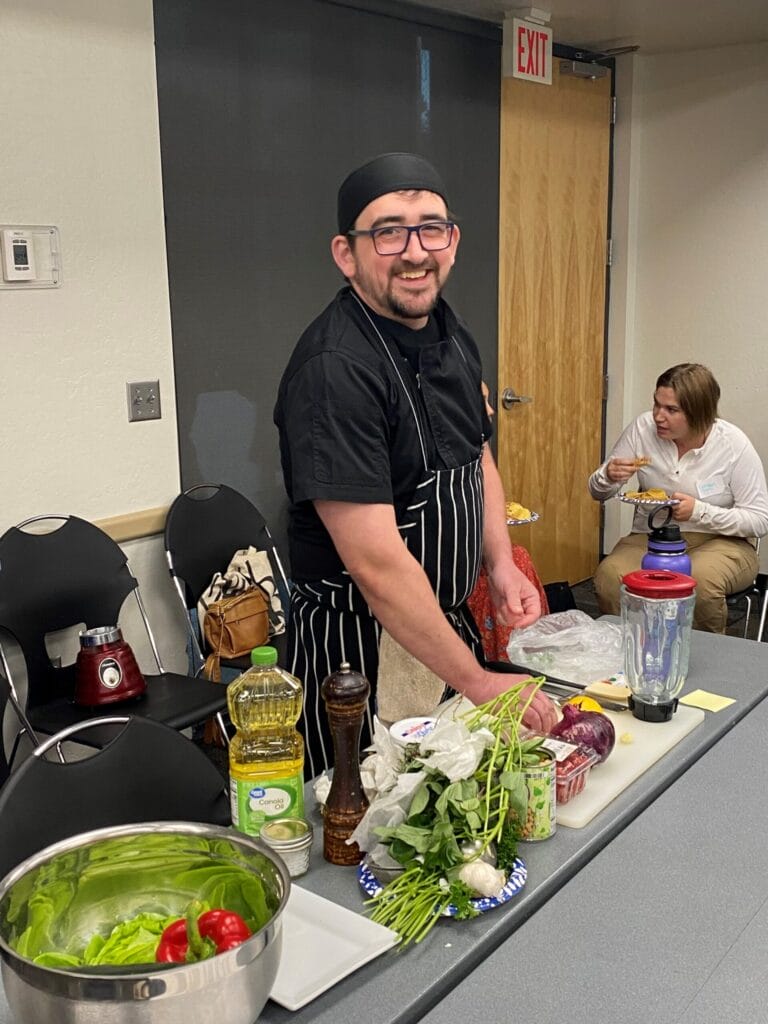
Certificate course for chefs
The Swette Center partnered with Compass Group and Google Food to train over 200 chefs on the connection between sustainability, nutrition, food choices and planetary health. The virtual learning series was named RePlant Your Menu and it focused on teaching chefs how to create more plant-forward menus that are simultaneously delicious and beneficial for both people and the environment.
Once training was complete, the chefs went back to their kitchens to review menus and see where more plant-forward options and diverse ingredients could be incorporated.

Community engagement
The Swette Center for Sustainable Food Systems welcomed world-renowned chef and author, Dan Barber, to ASU for a discussion about the commodification of taste in 2019. Dan described his latest culinary innovations, then he and Kathleen Merrigan identified policy initiatives to support joyful food. Following the presentation and audience Q&A, participants attended a reception to carry on informal discussion.
Related research priorities
-

Arizona food systems
Being based in Arizona, it’s only natural that supporting our home state’s food system is a top priority for the Swette Center. Arizona’s food system faces unique challenges due to the state’s arid climate and water scarcity. However, Arizona also presents opportunities for innovative approaches to promote sustainable food production and distribution.
-

Engaging the private sector
Engaging businesses, including food companies, retailers, agricultural technology providers and investors, in food systems brings valuable expertise and innovation capabilities that are essential for driving sustainable change. Collaborative partnerships between governments, civil society and the private sector can leverage the strengths of each sector to build resilient and inclusive food systems.
-

Empowering Indigenous foodways
Indigenous foodways hold immense importance as they represent the culmination of centuries of wisdom, culture and sustainable practices. They are the embodiment of indigenous communities’ deep connection to their lands, traditional knowledge and ancestral heritage. By preserving and revitalizing indigenous foodways, we aim to honor and celebrate the cultural diversity and resilience of indigenous peoples.
